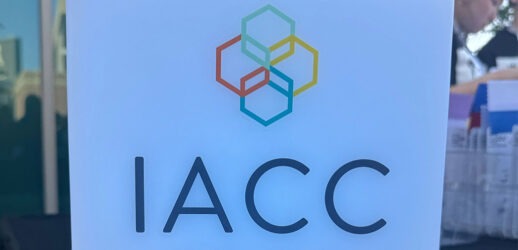When 120 members of the exhibitions industry showed up in Washington, D.C., for #ExhibitionsDay on Wednesday, they had a new strategy for approaching representatives. “The goal was to cover more ground,” said David DuBois, president and CEO of International Association of Exhibitions and Events (IAEE), of the approach for the sixth year of the organized lobbying effort.
More: #ExhibitionsDay Advocates for Industry
Members didn’t just talk to their representative (that would have resulted in a lot of people standing around looking pretty in Maryland lawmaker offices, DuBois joked). They spread out to tell the larger economic message of the $97 billion contributed to the U.S. economy in 2018 and the $300 billion spent globally that year. Therefore, a show organizer for Association of Equipment Manufacturers who lives in Wisconsin visited a Kentucky representative because the group plans an annual event in Louisville, Kentucky.
What was the ask? Streamlining visa programs. In particular, advocates explained the importance of renaming the Visa Waiver Program as the more friendly Secure Traveler Partnership Act of 2019. “Too many people read that and think it means anyone can come in without a visa,” DuBois said.
A total of 38 countries are currently cleared to allow their citizens to travel for up to 90 days without obtaining a visa. That list hasn’t been updated since 2015, when Taiwan joined the list—a development that took the number of visitors from the Asian country from 400,000 to 1.2 million a year. Currently, nine countries are on wait list to join the program—Argentina, Brazil, Bulgaria, Cyprus, Israel, Poland, Romania, Turkey and Uruguay.
“This is a bipartisan issue and will not cost anything to implement, but it can have a significant economic impact,” DuBois said.
On the heels of that change, he would like to see Jobs Originated through Launching Travel (JOLT) Act of 2019, which is supported by U.S. Travel Association, passed this year.
Meanwhile, meetings with U.S. Department of Labor staff covered building a competency model for business events, which were previously hidden under the heading of “hospitality.” It now has its own Standard Occupational Classification (SOC), so people looking at potential careers will see it as a viable path. The group members also met with U.S. Department of Commerce staff to give them the tools to promote attendance at events when they are traveling.
A Global Message
Because advocacy is about more than lobbying, the one-day event leveraged industry members from all over the world to celebrate the impact conferences have for their companies and countries. Some 40 partners in 90 countries took to the web to show their support.
From Africa to the Middle East, receptions and CSR events highlighted the impact of the industry on communities.
In Columbus, Ohio, supporters met at Greater Columbus Convention Center to spell out “Ex = $!” in human bodies. One in every 12 jobs in the city was attributed to the hospitality industry and exhibitions, travel and tourism.
Texas Economic Development Corporation shared the impact 5,000 life science and research companies, including Texas Medical Center, have on research and care for children and cancer patients.




